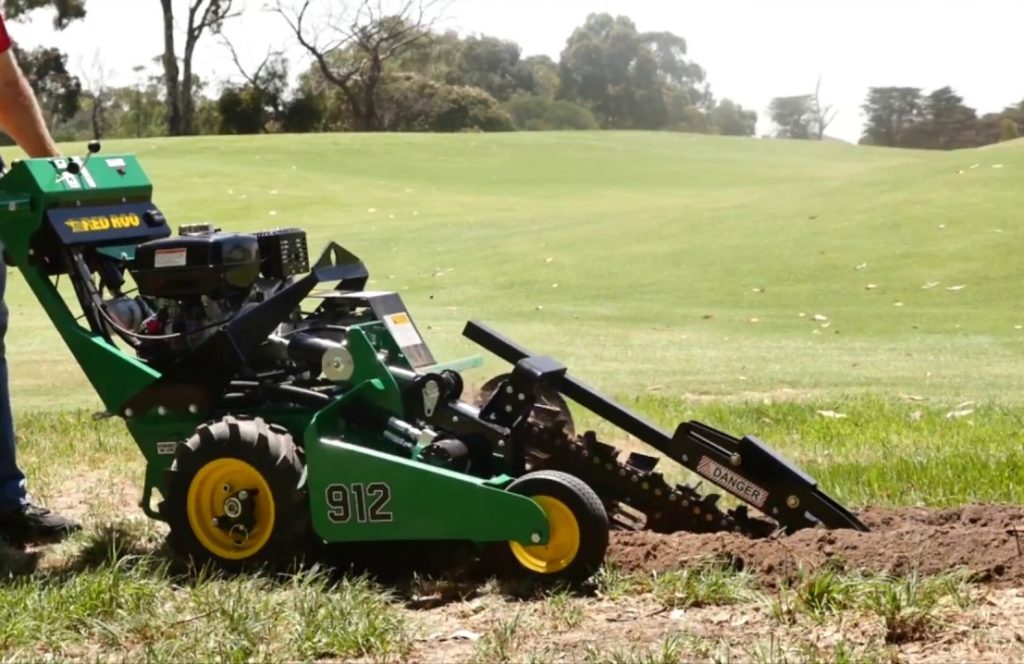Trenching Machines – Why They’re So Useful!
Digging a trench is hard work. Enough said! While it might seem like a good idea to grab a shovel and dig out a trench manually, let’s be honest – who really wants to do that?
Luckily, there are machines out there that make trench digging a breeze. Whether you have some electrical conduit to lay or you want to install a new storm drain, hire the right kit and life will be a lot easier.
Laying Electrical Cables
A hydraulic Trencher is more commonly known as a sparkie’s trencher because electricians use it when laying electrical conduit. A hydraulic trencher can cut a trench 600mm deep and 100mm wide. Homeowners often hire one before having electrical work carried out, as this handy piece of equipment makes digging trenches super easy and you won’t have to pay an electrician extra to get the work done!
A hydraulic trencher is also handy for contractors, as it can be used to dig trenches for data & NBN cabling.
Laying Pipework
For deeper trenches, the Kanga Hydraulic Trencher is the machine for the job. Hire this one if you have a lot of conduit to install over a long distance. The Kanga Hydraulic Trencher is also useful when excavating earth for stormwater pipes and sewer pipes, as it cuts down to 900mm at 150mm wide. For larger work areas, a 1T Compact Excavator or even a 1.7T Compact Excavator might be needed.
Don’t forget to pick up a Trench Prop to hold up boards on the side of your trench. This will prevent a trench wall collapse in soft ground, where there has been heavy rainfall, or the trench will be left open for a long duration.
We also stock the equipment you need to take care of backfilling. Compaction is important, as this prevents the ground from sinking once the pipes or conduit has been laid. Use an Upright Rammer to compact the base of your trench. A 60kg Plate Compactor has a narrow base for tighter areas. Use a Trench Shovel for working over small areas.
Watch Out for Utilities!
Before digging trenches, make sure you know where utilities are. Accidentally puncturing a water pipe won’t end well. Check the Dial Before You Dig site first.

